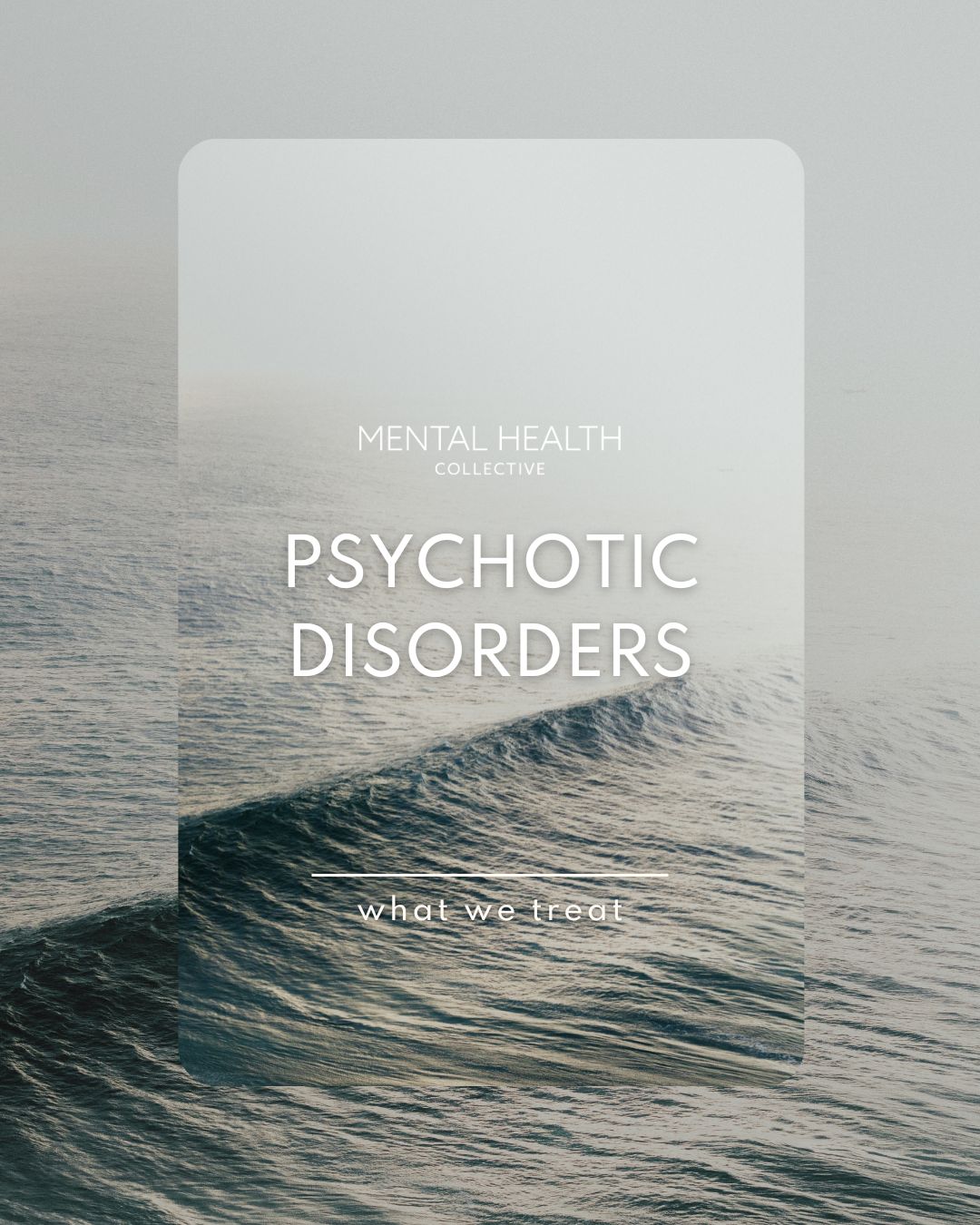Treating Psychotic Disorders

What are Psychotic Disorders?
Psychotic disorders are serious mental illnesses that cause altered cognitions and perceptions and may cause the affected individual to lose touch with reality.
Several serious mental illnesses are categorized as psychotic disorders, and their core symptoms include:
· Hallucinations (perceptual disturbances)
· Delusions (a persistent false belief)
People who suffer from psychotic disorders may have trouble with daily functioning, self-care, as well as occupational and social interactions.
Types of Psychotic Disorders
Schizophrenia is a serious, chronic mental illness that affects thinking, feeling, and behavior. The cause of schizophrenia is as yet unknown, and is likely caused by a combination of genetic and environmental factors.
‘Positive’ (Noticeable) Symptoms can include:
Hallucinations
Delusions
‘Negative’ Symptoms can include:
Flat affect (lack of emotion in facial expressions)
Impaired ability to experience pleasure in daily activities
Impaired motivation
Slowing of thoughts and speech
Cognitive Symptoms can include:
Reduced ability to understand or make decisions based on information (executive functioning)
Trouble focusing/paying attention
Reduced ability to use information directly upon learning/receiving it
Schizoaffective Disorder is a serious, chronic mental illness that combines the symptoms of schizophrenia and a mood disorder, such as depression or bipolar disorder. The exact cause of schizoaffective disorder is unknown, but is likely a combination of genetic, psychological, and social factors.
Schizophreniform Disorder is a disorder where the person has the symptoms of schizophrenia, (including delusions), hallucinations or both for a time period of one to six months. If symptoms persist longer than six months, the affected individual may be diagnosed with schizophrenia.
Delusional Disorder is a disorder where the core symptom is a fixed false belief, without other associated symptoms of psychosis. Individuals with delusional disorder have varying abilities to function, depending on the type and extent of their delusions.
Brief Psychotic Disorder has symptoms similar to schizophrenia which last up to one month. The cause of brief psychotic disorder is unknown, but is usually a combination of genetic vulnerability, along with extreme stress or trauma. With appropriate treatment, individuals with brief psychotic disorder can recover back to their previous level of functioning.
Mood Disorders such as depression and bipolar disorder can also have associated psychotic symptoms.
Diagnosing a Psychotic Disorder
If you or somebody you love suffers from any of the above symptoms, professional help is available. With all of the above disorders, including chronic disorders, the prognosis may be improved by an appropriate diagnosis and treatment program. People who suffer from chronic mental illness can live happy, healthy, and productive lives with ongoing treatment, including appropriate medication and therapy.
Proper diagnosis of psychotic disorders can be complex and challenging. It is important to seek a comprehensive biopsychosocial evaluation by an experienced clinician in order to receive the correct diagnosis.
How to Treat Treat Psychotic Disorders
At the Mental Health Collective, we understand the complexities of correctly diagnosing a psychotic disorder. Treatment begins with a careful diagnosis by a board-certified psychiatrist and a licensed psychologist. Our team will conduct a thorough biopsychosocial evaluation, and create a highly individualized and integrative treatment plan to begin the process of stabilization.
After your initial diagnosis, treatment may begin with medications for your particular symptoms. Your treatment team will closely monitor your symptoms, any potential side effects, and adjust medications accordingly.
In addition to medication, therapy is a critical part of initial stabilization and treatment. Therapy may include family, group, and individual therapy. With the right combination of medication and therapy, our goal is for you to return to a healthy, happy, and meaningful life.
The Mental Health Collective Treats Psychotic Disorders
Located in Newport Beach, California, The Collective is a comprehensive, integrative, and evidence-based mental health treatment program that provides patient-centered treatment in a safe and supportive environment. Our Doctoral and Masters level clinicians provide care for individuals who are suffering from mental health challenges.
Integrative treatment modalities may include:
Yoga
Mindfulness + Meditation
Journaling
Exercise
Nutrition
Massage therapy
Art
The Mental Health Collective Can Help You Heal
Our goal is to provide you with compassionate, sophisticated, and outcome-driven clinical care. With appropriate diagnosis and comprehensive, highly individualized treatment, you can take the first steps towards resuming a healthy and meaningful life. Our goal is not just symptom reduction, but to support each and every individual in living a life that is aligned with one’s core values.
DO YOU HAVE A QUESTION?
Send our team a message or call 888.717.9355